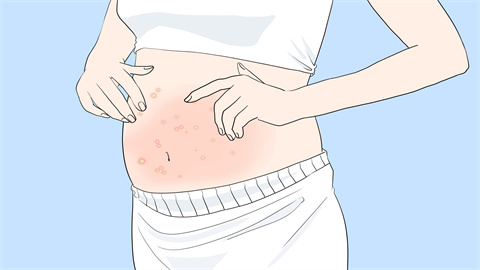What causes a wet sensation in the vaginal area during early pregnancy?
During early pregnancy, a wet sensation in the genital area may be caused by hormonal changes, increased vaginal discharge, vulvovaginitis, cervicitis, or trichomoniasis. This can be improved through proper hygiene, changing clothing, or medical treatment. If accompanied by odor, itching, or abnormal bleeding, prompt medical attention is necessary.
1. Hormonal changes: After conception, rising levels of estrogen and progesterone stimulate the vaginal mucosa to produce more secretions. The discharge is typically thin and odorless, which is a normal physiological phenomenon. It is recommended to wash the external genital area daily with warm water, keep the area clean and dry, and avoid over-cleaning inside the vagina.
2. Increased vaginal discharge: During pregnancy, cervical glands become more active and produce more cervical mucus, forming a mucus plug that helps prevent bacterial invasion, leading to a persistently moist feeling. It is advisable to wear cotton, breathable underwear and change it daily. Wash the underwear with boiling water and dry it in sunlight to reduce bacterial growth.

3. Vulvovaginitis: Reduced immunity during pregnancy may lead to bacterial infections causing inflammation, resulting in increased and abnormal discharge, often accompanied by vulvar itching. Under medical guidance, medications such as clotrimazole suppositories, nifuratel-nystatin vaginal soft capsules, or Hongke Fuyan cleansing solution may be used to relieve symptoms.
4. Cervicitis: Inflammation of the cervix caused by pathogen infection leads to increased discharge that may appear milky white or pale yellow, sometimes accompanied by a sensation of heaviness or discomfort in the lower abdomen. Under medical supervision, medications such as cefixime dispersible tablets, azithromycin dispersible tablets, or Baofu Kang suppositories may be used to alleviate symptoms.
5. Trichomoniasis (trichomonal vaginitis): Infection with Trichomonas vaginalis causes frothy, yellow-green vaginal discharge and significant vulvar itching. Patients should follow medical advice and use medications such as metronidazole suppositories, tinidazole suppositories, or Hongke Fuyan cleansing solution to improve symptoms.
Maintain cleanliness and dryness of the vulva, wear loose-fitting, breathable cotton underwear, change and wash it daily, eat a light and nutritious diet avoiding spicy or irritating foods, get adequate rest, and minimize local friction.




